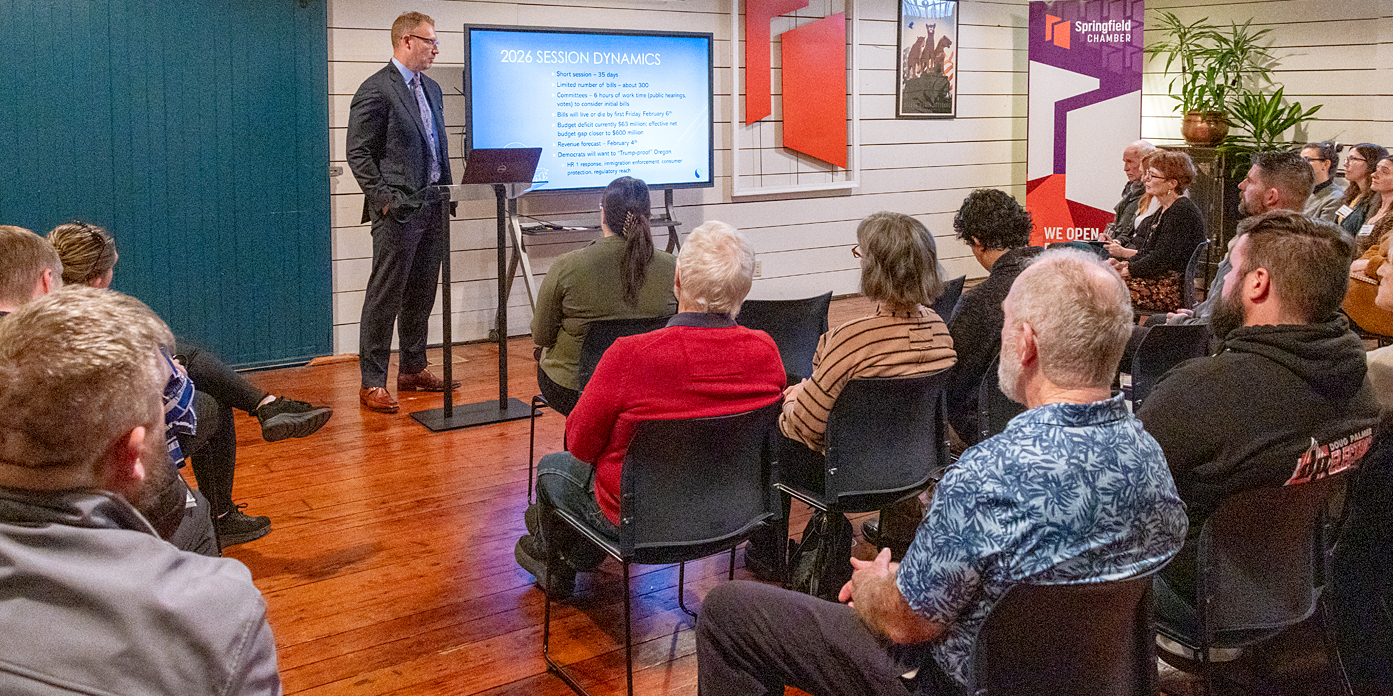Oregon State Chamber Releases 2023 Legislative Report

The following is an abridged version of the 2023 Legislative Report Summary, published by the Oregon State Chamber of Commerce. Please click here to see the full summary and report.
The 2023 Oregon legislative session proved to be one of the most chaotic and dramatic sessions in recent memory. It convened on January 17th and adjourned at 4:26pm on the very last Constitutionally permitted day – June 25th.
A Session of Change
The full 160-day session began with significant political changes in the Capitol. For the first time in several years, Democratic dominance in the legislature was tempered slightly as Republicans gained just enough seats in the 2022 elections to erase Democratic “supermajorities” in both the House and Senate.
Democrats held a 17-13 advantage in the Senate and a 35-25 advantage in the House. This meant that any bill requiring “supermajority” support needed Republican votes, particularly tax votes.
Also during the election, a record number of new legislators were elected – 22 members of the House of Representatives and a turnover of nearly 25% of the Senate – as well as a new Governor. Along with this came leadership changes – new Presiding Officers in both the House and Senate as well as new caucus leaders. Another amazing fact: more than half the legislature had never served “in-person” when the Capitol was open to the public.
Governor Tina Kotek provided early direction and focus to the session when she very publicly announced her intentions to focus on dealing with homelessness, increasing housing stock, behavioral health and K-12 improvements.
Legislative leadership then followed up with key complementary priorities which included replacement of the Interstate Bridge, incentives for the semi-conductor industry, implementation of Measure 114 gun control legislation, and shoring up the state’s public defense budget.
2023 Shows Early Promise
Governor Kotek signaled very early in session that 2023 was going to be a pragmatic session of fixing problems within available resources. Her Governor’s Recommended Budget was a very pragmatic guidepost that proposed to address her key priorities without raising additional tax revenue.
The state budget appeared to have just enough available money to accommodate the Governor’s priorities but little else, as there was just enough money in state coffers – about $31 billion – to keep state government funded at current levels.
Early on, bipartisanship reigned. Legislative leaders secured big bipartisan wins, including a package to begin addressing acute homelessness issues (HB 2001), as well as an incentive package to leverage Federal funds to encourage semiconductor manufacturing in Oregon (SB 4). Both of these bills passed easily with strong bipartisan support.
The work to balance the budget was also mostly unspectacular. Although concerns were raised by state economists that Oregon would enter a recession in 2023 and see potential revenue loss, those concerns did not materialize during the course of the session as both the February and May revenue forecasts revealed growing revenues for the 2023-25 biennium, giving legislators all the money they needed.
But the cordial environment in the capitol took a sharp turn at the halfway point of the session when legislative Democrats introduced a number of bills focusing on social issues, particularly abortion, gender-affirming care and gun control. This combined with frustration over vague ‘placeholder’ bills suddenly transforming into major policy statements with little notice or process, floor sessions became increasingly contentious as hostilities grew.
An Unprecedented Six Weeks
Republicans in both the House and Senate began employing delay tactics in an effort to prevent or delay votes, while there were rumors beginning to surface in late April that Republicans would potentially boycott the session for a few days or even longer.
On May 3rd, the 2023 session came to a crashing halt when the Senate Republican caucus followed through on its threat to boycott the session. This began the longest walkout in Oregon’s history. The absence of those Senators left the Senate unable to achieve a quorum to conduct business.
With quorum denied, all activity on the Senate floor came to a standstill for over 40 days. Weeks of negotiations appeared fruitless. Legislation and budgets could not pass with the Senate unable to conduct business.
Meanwhile, outside of the Senate impasse, work continued elsewhere in the Legislature, with most of the action focused on finishing out the budget and remaining policy bills in committees and in the House. But with action stalled in the Senate, bills continued to pile up, leaving everyone wondering what might end up on the cutting room floor when – or if – Senate Republicans returned.
One thing was known for certain: if budgets did not get passed by September 15th, then the State of Oregon would experience a true government shutdown.
Reconciliation & Sprint to the Finish
Finally, after a six-week standoff, Senate Republicans reached an agreement with the majority Democrats to return June 15th and finish the 2023 session. The return was a result of Democratic leadership agreeing to significantly scale back the high-profile bills that had triggered that walkout. Republicans dropped their demand that remaining bills be ‘substantially bipartisan.’ With quorum now present, the 10-day sprint to the finish line began, and the hundreds of bills backlogged on the Senate floor were fast-tracked to meet the Constitutionally-required June 25th sine die.
In the end, both parties claimed victory, though it may have come with a steep price. Both sides appeared to anger their base voters with the final reconciliation. But for Senate Republicans who received 10 unexcused absences as a result of the walkout – 11 members total – they are facing a serious consequence of being barred from running for re-election due to the passage of Ballot Measure 113 in the 2022 election. This will, of course, end up being litigated.
The 2023 session was uncharted territory for all of us. We appreciated the opportunity to serve you and advocate on your behalf. For all six weeks of the Senate Republican walkout, we had to carry on in anticipation that the standoff would be resolved, and we did our best to influence the best possible outcomes.
CLICK HERE FOR THE FULL LEGISLATIVE SUMMARY AND REPORT.
Discover more from Springfield Bottom Line
Subscribe to get the latest posts sent to your email.






